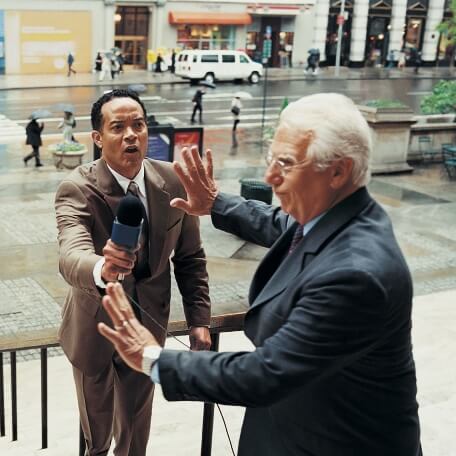The subscription economy is booming in the technology age. Zuora was created to help organisations take advantage and is reaping the benefits.
How I Built A Billion-Dollar Business In The Subscription Economy
The subscription economy is booming in the technology age. Zuora was created to help organisations take advantage and is reaping the benefits.

Tien Tzuo built Zuora, an award-winning platform powerful and flexible enough to fuel any subscription business. According to Zuora, four in five people have at least one subscription service, equivalent to 40 million adults accessing products and services on an on-going basis.
Tien spotted the shift towards subscribing to products instead of one-off purchases early on, and ten years later he’s turned this trend into a billion-dollar-valued business. Here’s how he did it.
Where did the idea come from?
The idea for Zuora came during a meeting at Salesforce between Marc Benioff and a founder of online-meetings firm WebEx. Instead of talking about what Marc had planned, we spent 45 minutes talking about what a headache billing was for subscription companies like theirs.
At the time, such companies had to build their own billing software and upgrade it continually. A few months later, my co-founders KV Rao and Cheng Zou put together a prototype and asked me to come on board. We instantly knew there would be a huge demand for this platform – and $30 billion in transactions from hundreds of customers later, we were right!
How has the business grown?
We’re at about 600 people now, with 15 offices across four continents serving an 800-strong client list, so we’ve experienced a lot of growth! At our current size and scale, our next wave of growth is really about new markets.
We’ve made great progress across the media and publishing space and as research from our latest report suggests, stating that 45% of Brits are interested in subscribing to home security services, we’re seeing a lot of new opportunities within the tech, IoT and telco industries.
Businesses across these sectors are all looking for help and guidance on how to successfully roll out new subscription-based business models.
What's the market like for businesses like yours?
Since we founded Zuora in 2007, competition has certainly heated up. The sheer growth in the number of subscription services on offer has seen the total addressable market for subscription billing rise to a huge £10billion.
Although there’s been a selection of new start-ups throwing their hats into the ring, we’ve had the advantage of being early to the party, leading us to consistently achieve annual revenue growth and sign-up more than 800 customers worldwide.
We’ve found that our commerce flexibility is perfect for enabling businesses to tailor subscription packages and promotions across a broad array of demographics and geographic regions.
What problems have you encountered?
We have this phrase in the company: We have one CEO, but we have 600 “ZEOs.” We like putting “z” in front of everything! But how do you have 600 ZEOs who feel empowered, and point them all in the same direction?
That’s one of the big challenges of our scale. We hope we can continue on a track to keep doubling every 12 to 18 months. We want to be at 1,000 people in the near future. But how do we put in a structure to have us all work together so that we don’t cave in on ourselves? That’s the biggest challenge we have right now.
What the hardest thing about running your own business?
Probably the hardest thing and something I spend a lot of time doing is ensuring we have great leadership running the organisation. I’m not able to make all the decisions in the company. I go back to the ZEO culture, empowering people to make decisions and ensuring alignment.
I think the most fulfilling thing is watching employees grow and thrive inside Zuora. Also, our customers are the most inspiring thing for me. Understanding their stories and realising that we are helping them to do amazing things is very rewarding.
What's your approach to recruiting and inspiring people?
Professional development is a real key focus for us at Zuora. One prime example of this is the personal development of our employees. As the company grew, the team needed to quickly develop into not just senior figures, but ‘leaders of leaders’.
In order to do this, we completely overhauled the way that we work, turning one to ones into larger team meetings and looking closely at our team building practices.
One of the most impactful changes came off the back of a visit from leading executive management coach, Richard Hadberg. Richard has worked with some of Silicon Valley’s leading CEOs to help them create an environment for their staff that encourages and fosters innovation.
He helped us work with the team to empower our employees to run with their ideas and make a real impact on the business and the way it works.
What makes the business unique?
We have a vision that one day, every company in the world will have a subscription-based offering. We’re really focused on helping our customers be successful in the global Subscription Economy. We’ve developed a methodology for doing this we call the 9 keys.
We have a lot of customers who come to us after trying to build their own home-grown version of a subscription management platform. We also have a lot of companies who have tried to do this with a legacy ERP system and failed.
The problem with legacy systems is they were designed for a product era paradigm where it was all about getting products out to the customer in a transactional manner. With a subscription-based business, because it's an ongoing recurring relationship with the customer, you need a system that can help you manage that relationship successfully.
We have demographic, behavioural and financial analytics that inform businesses about their subscribers’ preferences and behaviours and help them improve that relationship with agility and iterations.
Can other businesses tap into the subscription economy?
For businesses, it's about customer relationships. Why? Because subscription services provide businesses with the opportunity to better understand their customers based on their preferences and behaviours --- to develop longer-lasting and more meaningful relationships.
How many flowers are they getting delivered regularly, and when? What connected car features have they subscribed to? How much cloud storage do they need at peak times?
Long relationships in return drive new, more predictable revenue streams as loyal customers keep subscribing. This gives you a sharper competitive edge and a stronger business foundation. Every customer is unique and has different, ever-changing needs, so businesses that still try to sell one-size-fits-all packages that lock customers into long-term contracts will be left in the cold.
Around 64% of British consumers think it’s important they can discover new things based on their personal preferences, and almost as many request instant access to the things they want. We’re witnessing a once-in-a-century shift from a product era to one driven by customer-first interactions.
Customers expect personalised services, including continuous improvements in the quality of these experiences. Any business that is not already making this shift is at risk of being left behind.
What are your top three tips for people starting a business today?
People often assume that success is made overnight and that a billion-pound idea comes to you in a dream – but it simply doesn’t work like that. True innovation takes time and effort but most importantly, persistence. These three factors are critical to creating a successful business.
I’m also a big believer in immersing yourself in the right environment. I often quite controversially say that success is only 30% based on you and 70% based on the environment you work in.
It’s important that you choose the right environment, people and even area for your business because that’s where you’re going to get the opportunity to immerse yourself and to work out your big ideas.
Thanks for signing up to Minutehack alerts.
Brilliant editorials heading your way soon.
Okay, Thanks!




